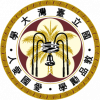In the end of June this year, NTU set up an office named as Experimental Scheme and Innovative Policy of Advanced Education (ESIPAE), and I am one of the members who initiated it. This institution currently is directly under the office of the NTU President and its task is to handle the affairs of community engagement, relocation and resettlement issues related to Shaoxing Community which has been squatting on the NTU land for decades. NTU obtained the lands decades ago from the government for developing new campus for medical school; however, by law NTU as an educational institute, can’t give residents any entitlements. And the central government don not provide any public housing for resettlement either. Moreover, National government has been reminding NTU to follow the current model of displacement people squatting on national lands. In the past 6 years, some students and professors at NTU have been mobilized to protect the housing right of residents there, and exploring solutions under the harsh legal situation.
To raise the social awareness, students initiated ‘Shaoxing Curriculum’ and based on it developed a series of event including forums, exhibitions, community tours and so on. They also collaborated with professors to develop curriculum by using Shaoxing as a teaching site. Community and NGO groups are also involved in these university/public educational experiments. In the ‘Shaoxing Curriculum’, to remove the social stigma on the squatters by introducing a perspective of humanities and social knowledge is a focus. On the other hand, community empowerment is a key concern of the curriculum. We hope to strengthen the community organization with involving them in the decision making and knowledge production. Through working with residents, some new forms of urban knowledge have been developed, and it benefits the students and class instructors in disciplines of urban geography, sociology, anthropologies, planning, cinema studies,creative industry and so on.
Through about six years, NTU finally got green light from the central government to kick off ESIPAE with the communities. BY this, NTU will provide 4 years of interim housing and 20 years of social rental housing for the residents, and thus residents will be allowed to stay on the campus of medical school. The set-up of ESIPAE symbolizes the end of the confrontation and a new path unfolded towards collaboration on education and research between the university and community.
In the past two months, ESIPAE office members also extended to NTU faculties of Medical and Public Health. Some faculty there has participated in the medical care for aging locally policy in Bangkah area, and worked with local communities. Together we proposed a ‘National Integration for Health and Care’ Project to join the ‘University Social Responsibility’ program launched by the Ministry of Education. We hope by collaboration, the model of based on two sites (Bangkah and Shaoxing) and two approaches (institution-initiated and community initiated) will benefit from each other. The PI of this project is Prof. Kuo Dai-wei the Vice President of NTU. Now we have entered the short list for award, and the decision will be made in July 14, after the committee from the Ministry of Education finishes the site visit. If successful, this grant will run for future 4 years. We hope based on our project, a perspective from local inputs and community empowerment will be introduced to remodel the current approach of national care policy which still holds a gap to be filled between the resources of communities and medical care institutions. A new curriculum for the new approach will also be produced and submitted to the central government.
Liling Huang


